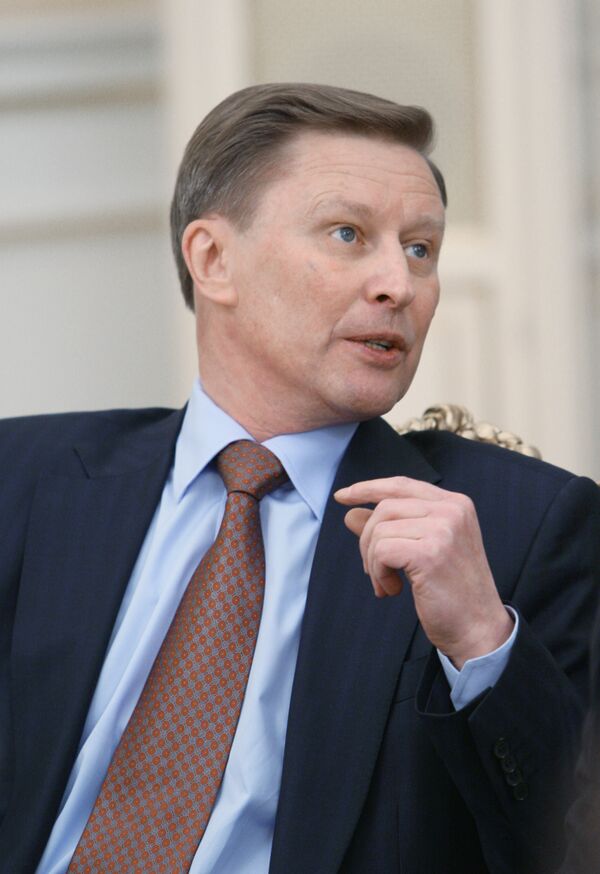ST. PETERSBURG June 5 (RIA Novosti) - Russia and the United States should elaborate "tougher rules of the game" relating to the international nuclear nonproliferation regime, a Russian deputy prime minister said on Friday.
Speaking at the St. Petersburg Economic Forum, Sergei Ivanov said the existing nonproliferation regime was "weak."
He said that the ongoing global economic crisis was lending a special urgency to the issue.
"In the context of the crisis, those who possess [enrichment] technology or even enriched uranium could be tempted to sell their technology or materials on the side," he said.
He said there were an increasing number of potential buyers, especially among terrorist and extremist organizations.
Russian President Dmitry Medvedev said earlier on Friday he intended to discuss nuclear proliferation at his upcoming meeting with U.S. President Barack Obama.
The two presidents are due to meet in Moscow in early July.
Medvedev said proliferation concerns had increased following North Korea's nuclear test last month, adding that Russia and the United States were aware of their responsibility but "uncontrolled proliferation of nuclear weapons threatens the whole of mankind."
He said it was necessary to monitor very closely the ongoing processes in "threshold states," which were developing nuclear weapons without an international mandate.
He previously said Russia was ready to support economic sanctions to deter North Korea's nuclear program.
Russia's UN envoy said earlier on Friday the five permanent members of the UN Security Council are "close" to passing a draft resolution on North Korea that would include new sanctions against the reclusive communist regime.
The ambassadors from Russia, the United States, China, Britain and France, as well as envoys from Japan and South Korea, held a new round of closed-door consultations late on Thursday in an attempt to determine what should be included in the sanctions following Pyongyang's latest nuclear test and missile launches.
The UN Security Council has denounced Pyongyang's May 25 nuclear test as a violation of Resolution 1718 and the international non-proliferation regime. North Korea is under a number of UN sanctions over its first nuclear test, carried out in 2006.
Possible new sanctions may include a ban on importing and exporting all arms and not just heavy weapons, additional asset freezes and travel bans for North Korean officials, and placing more firms on a UN blacklist, according to UN sources.
Once the representatives have agreed the draft text, it will be sent to their governments for approval. The resolution will then be voted on by the 15-nation Security Council.


